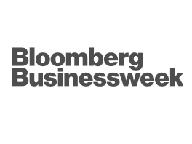Faculty News
—
Prof. Scott Galloway discusses the future of the Oscar de la Renta brand
—
Excerpt from Bloomberg -- "In 2010, de la Renta quietly sold an approximately 20 percent stake to GF Capital Management & Advisors to provide additional financing to launch a beauty business and open more stores. To leverage its brand, the company will need more capital, said Scott Galloway, who teaches marketing at New York University’s Stern School of Business. He said the brand could be valued at as much as $1 billion if it can attract less well-heeled shoppers and said a strategic buyer or private equity firm might bite."
Read more
Read more
Faculty News
—
Excerpt from Bloomberg -- "In 2010, de la Renta quietly sold an approximately 20 percent stake to GF Capital Management & Advisors to provide additional financing to launch a beauty business and open more stores. To leverage its brand, the company will need more capital, said Scott Galloway, who teaches marketing at New York University’s Stern School of Business. He said the brand could be valued at as much as $1 billion if it can attract less well-heeled shoppers and said a strategic buyer or private equity firm might bite."
Read more
Read more



















